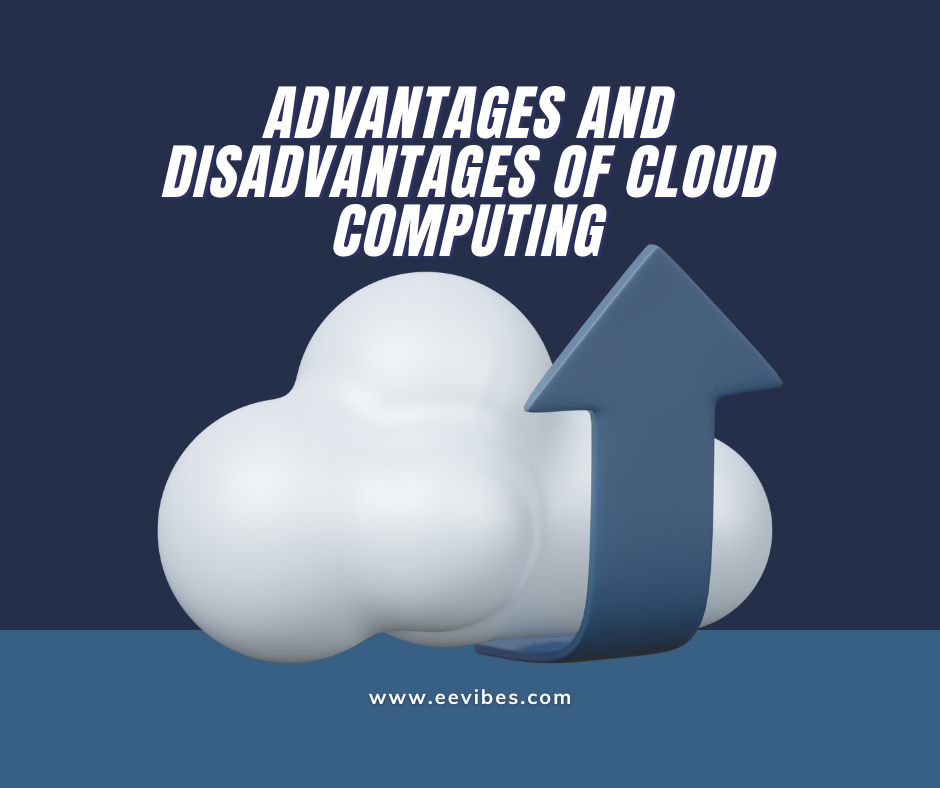
Advantages and Disadvantages of Cloud Computing
In this article, I will share some of the most important advantages and disadvantages of cloud computing. Adopting cloud computing for most of the organizations is because of numbers of factors that are involved in.
Advantages of Cloud Computing
The basic benefits of using cloud computing are:
- Economical
- Approximately unlimited storage
- Availability of Recovery and Backup options
- Automatic Software Integration
- Ease of access to information
- Quick Deployment
Now let’s discuss each of the advantages in detail .
Economical
The organizations that actually require huge amount of investments have the benefit of reduced expenses because of cloud computing. This is because of the fact that cloud computing offers cost-effective use of cloud resources and applications.
Approximately unlimited storage
Yes you read it right! Based on the user’s requirements, cloud computing gives the access to very large storage space. So user can store data as much as he intends to store.
Availability of Recovery and Backup options
For the infrastructure of most traditional physical computing instruction, backup and recovery services are provided by the cloud. This way of storing and retaining information is quite effective and reliable as compared to other devices.
Automatic Software Integration
Real-time and seamless integration of applications are ensured by cloud computing to its users, environment and system. Reinventing the wheel of such capability is not needed by the user.
Ease of access to information
The user can access the data from anywhere and at anytime so easily and exotically.
Quick Deployment
Once you are done with the relevant parameter settings and functionality, you are ready to use the cloud. Also the upgradation of technology stack and software are not required by the user. It is already done by the provider and updates releases are always available.
The compatibility of infrastructure and development environment is always matched. It is ensured by the provider. It also provides flexible switching between multiple staging environment.
Also check :
How does the cloud service provider work?
Disadvantages of Cloud Computing
Following are the disadvantages of cloud computing:
- Technical Issues
- They are Prone to attack
- Security and Privacy Concerns
- Lacking Standards
- Evolving Continuously
- Compliance Concerns
- Migration of Service
Now, lets discuss each of them individually.
Technical Issues
Technical issues occur if you have a bad internet connection or a dysfunctional system.
They are Prone to attack
Since a lot of sensitive information is stored on cloud, hackers are always trying to attack the cloud that results in security threats. Your information is never secured with 100% guarantee once it is on internet or cloud.
Security and Privacy Concerns
There are still some challenges related to security and privacy that cloud computing is facing. Protection of data, confidentiality, and user authentication are main points of concerns. Data protection is usually handled with data encryption techniques. Companies do practice the major operational procedure of analysis of audit trials and data access logs in order to ensure the integrity of user authentication. Because of natural disasters and data breaches, a centralized cloud is more at risks.
Lacking Standards
There are no associated standards is most documented interfaces of clouds. This thing may result in interoperability issues. Open grid forum is currently working on this challenge.
Evolving Continuously
As we all know that cloud is evolving continuously. Also the user requirements for storage and functionality are main concerns and need to be addressed with ever growing community of people.
Compliance Concerns
Policy and compliance concerns are one of the most significant challenges that cloud computing is handling. This is because of the fact that there is not standardize external interface in cloud computing. Also data protections laws vary from one country to another.
Migration of Service
After the migration of service to the cloud user lock-in to a particular provider, which is actually a problem. It is due to the fact that there is no standardized central infrastructure of cloud computing.
Conclusion
By looking at the pros and cons of cloud computing we conclude that cloud computing is still the need of the hour for data storage purposes. The unlimited availability of space is the key reason that attract its users. But still we need to work more on central standard infrastructure so that privacy and threats concerns can be handled properly.
Also read here